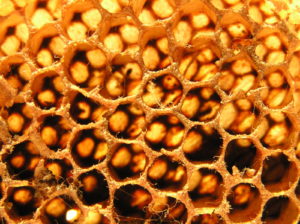Bee Campus
To address the problem of global pollinator decline, STIA is working in partnership with the Georgetown Office of Sustainability and the Department of Biology to designate Georgetown University as a Bee Campus. With funding support from the 2019 Laudato Si fund, a team of students are working with STIA adjunct professor Bill Hahn and STIA teaching professor Cindy Wei to host campus hives and educate the campus about the importance of pollinators.
The Xerces Society has introduced the concept of the Bee Campus by which students, faculty, and staff come together to further pollinator awareness and protection on university campuses as well as the broader community in which the campuses operate. This program has proven very effective at over sixty universities in the US and would be an excellent fit for Georgetown University given the university’s academic activities and commitment to community service.
The Bee Campus project will focus on interconnections between people, pollinators, and the broader environment. Pollinators are quintessential symbionts with the plants they flower and pollination is absolutely essential to significant parts of our food production system. Furthermore, the evolution of pollination as a process is a major factor in overall plant and insect diversity as both plants and pollinators have coevolved and increased species and interaction richness over time. We hope to include outreach that helps educate the Georgetown University community on these connections.
The key elements of a Bee Campus are:
- Establishing a Committee and Development of a Habitat Plan
- Hosting Awareness Events
- Sponsoring and Tracking Student Service-Learning Projects
- Offering Pollinator-Focused Courses and/or Workshops
- Posting Signage to Educate Your Campus and Broader Community
- Maintaining a Web Presence to Share Your Bee Campus USA News and Activities
The Georgetown campus has a variety of gardens that are used for instruction, aesthetics, and as food sources for pollinators and other native insect species. The Bee Campus is also featured on the new campus Sustainability Walking Tour.
More information about The Bee Campus is available on the Hoya Hives Facebook page.
